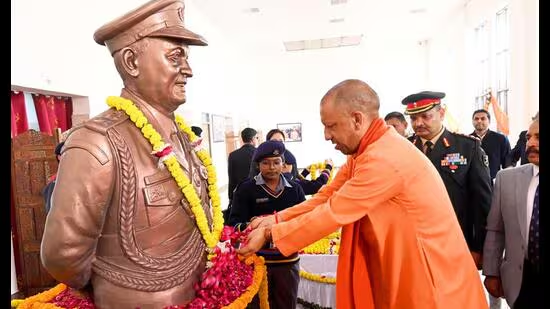Lok Sabha Passes Landmark Online Gaming Bill Amid Rising Concerns Over Youth Addiction and Suicides
By Tajdar H Zaidi
In what is being seen as a decisive step to address one of the most alarming social challenges of recent years, the Lok Sabha on Wednesday passed the Promotion and Regulation of Online Gaming Bill, 2025, aimed at curbing the growing menace of online gaming addiction, financial fraud, and money laundering.
The bill was introduced earlier in the day and cleared by a voice vote after brief remarks by Minister of Electronics and Information Technology Ashwini Vaishnaw, even as the opposition staged protests over unrelated issues. Soon after the passing of the legislation, the House was adjourned amid continued disruption.
Online Gaming: A Silent Crisis Among India’s Youth
For years, online money gaming platforms have been marketed as entertainment and “skill-based opportunities.” Yet, in reality, they have led to serious financial and psychological harm among India’s youth.
Students and young professionals, lured by the promise of quick money through fantasy sports, poker, rummy, and online lotteries, often end up in spirals of debt.
While official data on the human toll remains unclear, reports from across the country reveal a disturbing trend—many families have seen their children pushed into financial ruin, and in heartbreaking cases, young people have resorted to suicide after being unable to repay debts incurred through online gaming.
Parents and mental health experts have consistently flagged this as a hidden epidemic impacting the middle-class and student communities alike.
Recognising this growing crisis, the government has chosen to outlaw all forms of online betting and gambling games, irrespective of whether they are based on skill or chance.
Key Provisions of the Bill
The draft law not only prohibits harmful online money games but also introduces a framework to encourage safe, productive, and culturally aligned gaming platforms. Here are the highlights:
- Recognition of Esports as a Legitimate Sport
- The bill distinguishes competitive esports from online betting.
- The Union Sports Ministry will set guidelines for esports tournaments, training academies, research hubs, and integration into India’s broader sports policy.
- Incentive schemes and awareness drives will support its growth, ensuring esports gets recognition as a genuine form of skill-based competition.
- Promotion of Social and Educational Games
- The government will encourage the creation of age-appropriate, culturally relevant, and educational gaming platforms.
- Social games designed around Indian values, learning, and creativity will be promoted through official platforms and partnerships.
- Complete Ban on Online Money Games
- All online games involving monetary stakes—be it fantasy sports, poker, rummy, or lotteries—are banned.
- Advertising or promoting such games on television, print, or digital media is prohibited.
- Banks and financial institutions are barred from processing payments for these activities.
- Existing platforms will be blocked under the provisions of the Information Technology Act, 2000.
- Creation of a National Online Gaming Authority
- A new regulator will be set up to oversee the online gaming ecosystem.
- Its duties include categorising and registering permissible games, handling complaints, monitoring violations, and issuing codes of practice.
- This authority will also determine whether a game qualifies as a money game and act swiftly to ban it if found harmful.
- Strict Offences and Penalties
- Operating or facilitating online money games can attract up to three years’ imprisonment and/or a fine of ₹1 crore.
- Advertising such games will carry a penalty of ₹50 lakh or two years in jail.
- Repeat offences could result in 3–5 years’ imprisonment and fines up to ₹2 crore.
- Financial transactions linked to banned games will also invite heavy punishment.
Why the Government Took This Step
A government media statement explained that the harms of online money gaming are no longer just financial—they are a matter of life and death. Addiction, debt, and manipulation through “rigged algorithms and exploitative game design” have devastated households across India.
“Many young students and working professionals have lost their savings, fallen into debt traps, and tragically, some have even taken their own lives,” the statement read. “The government believes that these extreme outcomes can be prevented only through strict prohibition, not mere regulation.”
Officials also flagged national security concerns, noting that several platforms have been misused for money laundering, terror financing, and illegal messaging networks.
Impact on India’s Gaming Industry
India’s gaming industry, valued at $3.8 billion and backed by global investors, faces a seismic shift. Popular apps like Dream11, Games24x7, and MPL (Mobile Premier League), which thrived on fantasy sports and betting models, will face a direct blow.
While investors may be disappointed, policymakers argue that protecting families and youth outweighs commercial interests.
The bill will now be sent to the Rajya Sabha for final approval before becoming law. If cleared, it will mark a turning point in India’s digital landscape—drawing a clear line between responsible esports and socially destructive money games.
This move reflects a larger acknowledgment: not all technology-led entertainment is safe. In an era where smartphones have made gambling accessible to every student’s pocket, India has decided that the well-being of its youth is non-negotiable.
#OnlineGamingBan #YouthAddiction #LokSabha #IndiaFightsGambling #OnlineGamingCrisis #StudentSuicides #ResponsibleGaming #DigitalSafety #AshwiniVaishnaw




